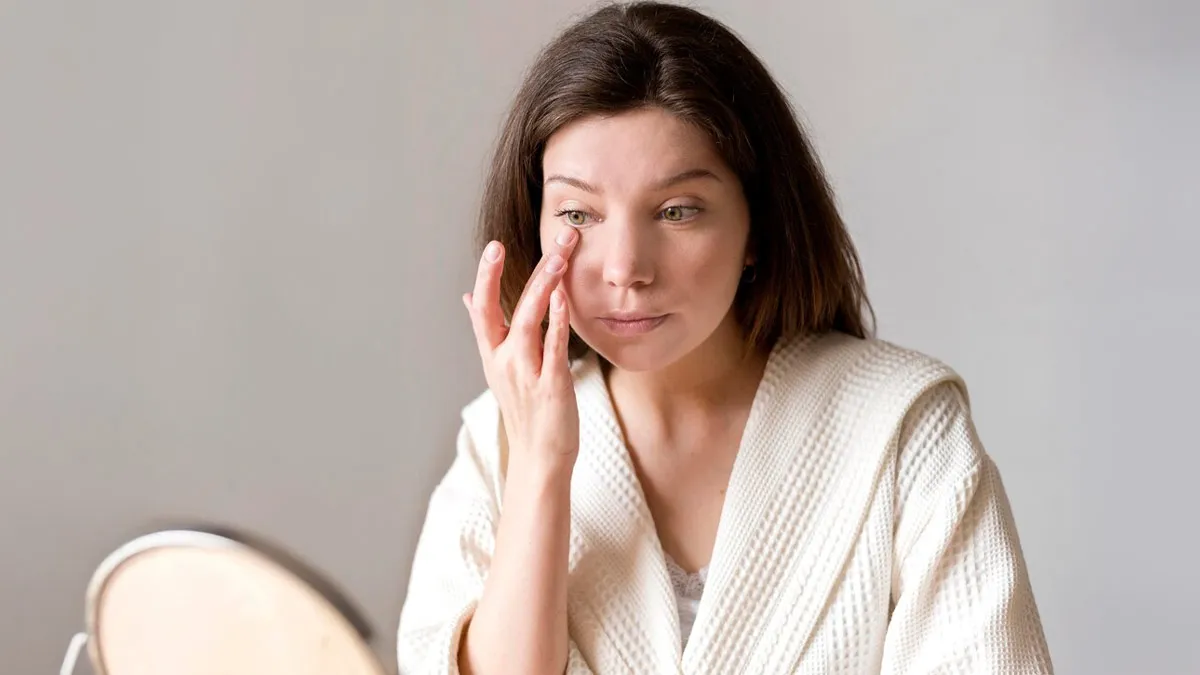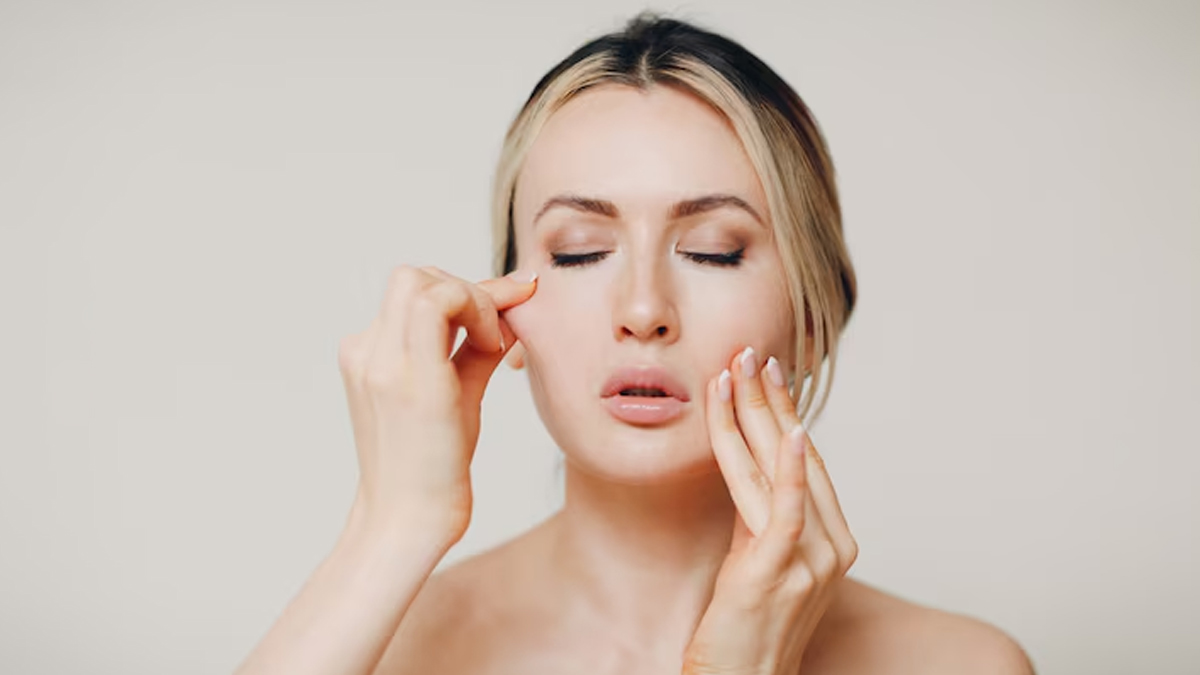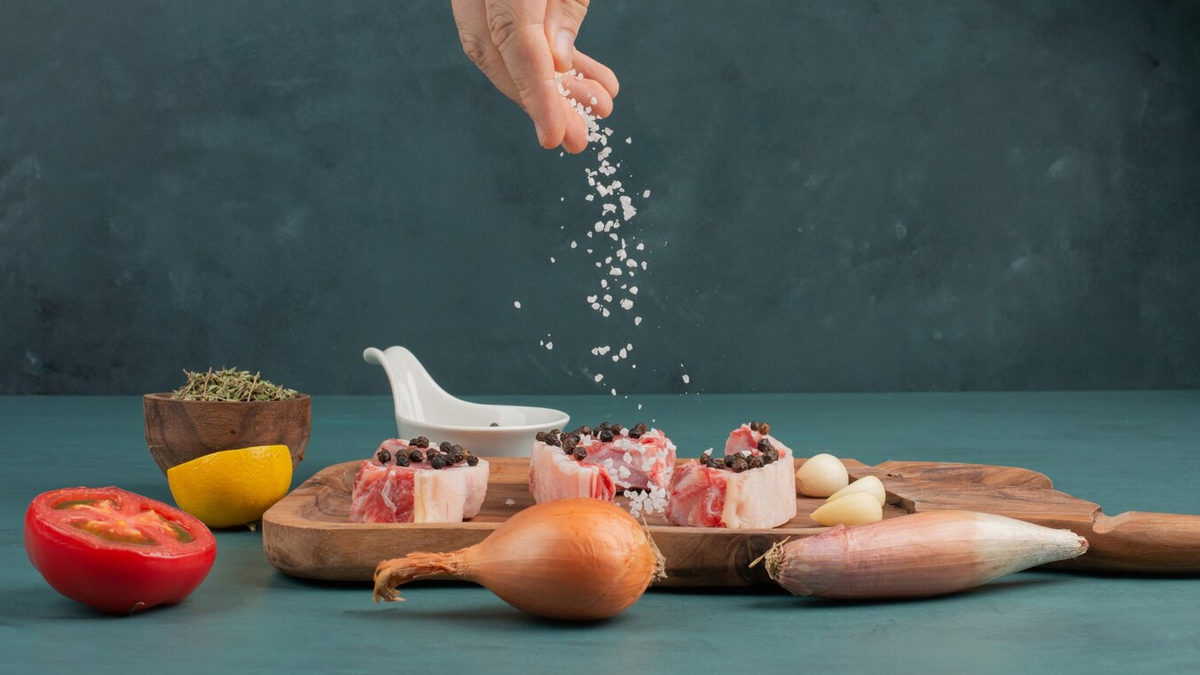
Your diet is crucial for your health; it keeps you energetic, protects you from various illnesses and infections, and reduces the risk of chronic health conditions like diabetes, fatty liver, heart disease, and more. However, did you know that your diet also influences your skin health? For instance, experts suggest a high sodium or an excessively salty diet can lead to skin puffiness. So, if you often wake up with a bloated face and wonder why, your salt intake could be the culprit.
Table of Content:-
To better understand the link and ways to prevent it, the OnlyMyHealth team spoke to Dr Sunil Kumar Prabhu, Consultant Dermatologist and Aesthetic Physician, Aster RV Hospitals, JP Nagar, Bengaluru. He shared valuable insights on how diet affects skin health.
Also Read: Pink, White, Table, Or Iodised: How To Choose The Right Salt For Optimal Health
The Link Between A Salty Diet And Skin Puffiness

You might have heard excess sodium intake can increase your blood pressure levels. Similarly, a salty diet can also impact your skin health, leading to puffiness. This can occur through similar mechanisms, primarily by causing fluid retention.
Dr Prabhu explained, “When you consume too much salt, your body retains more water to balance out the sodium levels, which can lead to puffiness, especially around the eyes, face, and sometimes the hands or feet.”
Other common ways a salty diet contributes to skin puffiness include:
Dehydration: Ironically, eating too much salt can also dehydrate the body. As the body tries to retain water to dilute the excess salt, the skin might look puffy due to water retention, and you might feel bloated overall.
Inflammation: A diet high in sodium can also cause inflammation in the body, which may contribute to skin puffiness. Inflammatory responses can lead to fluid buildup, especially in sensitive areas like under the eyes.
How To Reduce Skin Puffiness Caused By High Salt Diet

The World Health Organization (WHO) suggests that adults worldwide consume an average of 4,310 mg of sodium (10.78 g salt) per day, which is more than double the WHO's recommended limit of 2,000 mg (5 g salt or about one teaspoon).
Reducing salt intake can have several benefits, including a reduction in skin puffiness. Other effective strategies include:
- Drink plenty of water to help your body flush out excess sodium.
- Eating a balanced diet, which includes fresh fruits, vegetables, and whole foods.
- Avoid processed foods, which are often high in salt.
- Trying natural diuretics: foods like cucumber, watermelon, and asparagus
“Once you reduce your salty diet, drink water, eat a balanced diet, and eat less processed foods that may contain sodium salts, you should see improvement in approximately 2-4 weeks,” said Dr Prabhu.
Also Read: WHO’s New Guidelines on Low-Sodium Salt Intake: Here's What You Need To Know
Other Causes Of Skin Puffiness

According to Dr Prabhu, skin puffiness can result from various factors beyond a salty diet. Common causes include allergies, fluid retention due to hormones, dehydration, kidney/heart conditions, sleep deprivation, and inflammation from conditions like eczema.
Sinus congestion, corticosteroid use, and thyroid disorders, such as hypothyroidism, can also contribute to the skin problem.
Moreover, alcohol consumption, poor circulation, injuries, ageing, and certain medications like antidepressants or birth control pills may lead to puffiness. If persistent or worsening, consult a healthcare provider for proper evaluation and treatment.
Conclusion
Dr Prabhu emphasised that diet significantly impacts skin health, from acne to ageing. Antioxidants like vitamins C and E and beta-carotene support collagen and protect against Ultraviolet (UV) damage, found in citrus fruits, berries, and leafy greens.
Omega-3s, such as fatty fish and chia seeds, help maintain moisture and reduce inflammation, while zinc sources like pumpkin seeds and nuts aid healing and collagen production. Lastly, he concluded that vitamin A (carrots, spinach) promotes cell turnover and wrinkle prevention.
Most importantly, hydration from water-rich foods like cucumbers keeps skin plump, and probiotics like yoghurt and kefir improve gut health, benefiting skin clarity.
Also watch this video
How we keep this article up to date:
We work with experts and keep a close eye on the latest in health and wellness. Whenever there is a new research or helpful information, we update our articles with accurate and useful advice.
Current Version